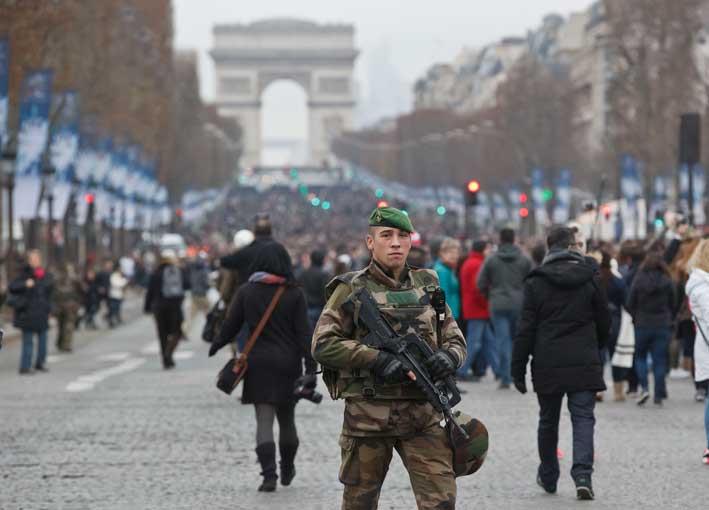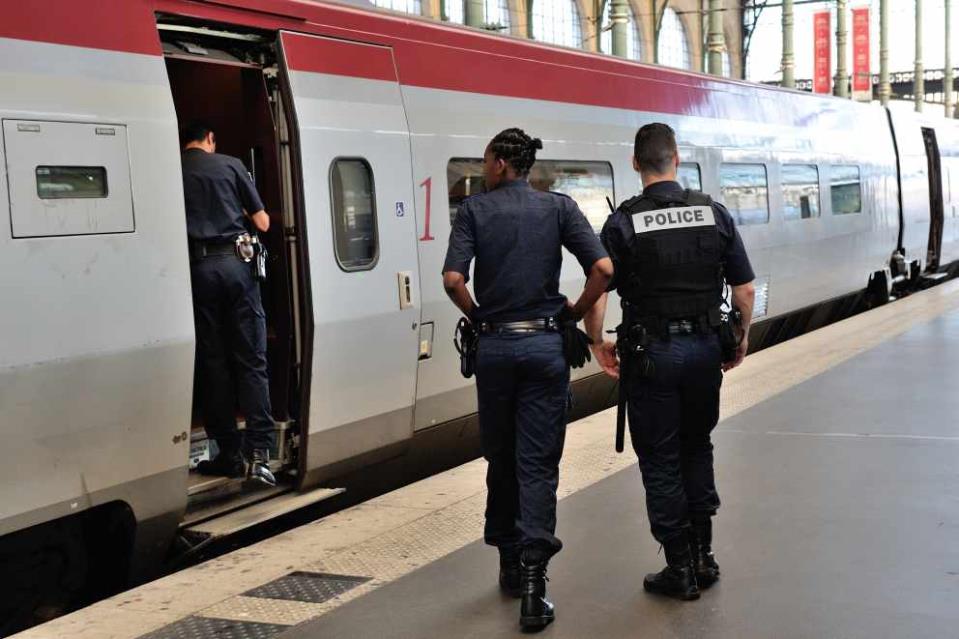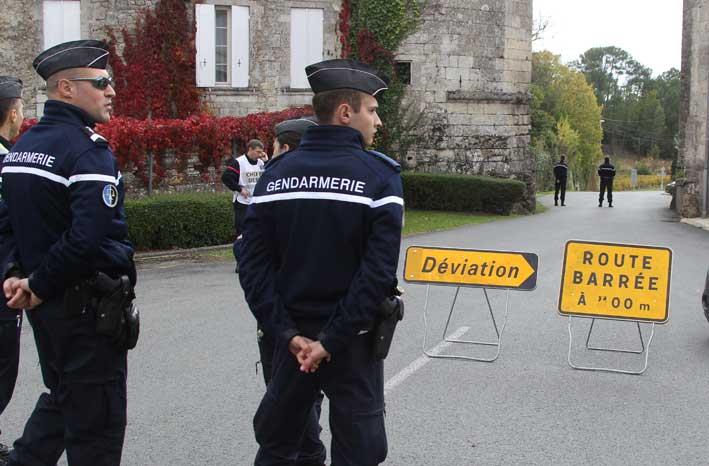As with all modern sporting mega-events and their hosts, Euro 2016 will be a mirror for contemporary France: The reflection could be beautiful, ugly, or most likely a mix of both.
Befitting the world's sixth largest economy, the bricks and mortar for a successful tournament have been ready for months. New, refurbished or already magnificent stadiums in nine host cities stand as advertisements for French engineering and savoir faire.
The same is true of the high-speed rail network and cross-country web of "autoroute" highways that should make it a breeze for fans to travel to the 51 matches, soaking up the natural beauty in between. No more sleeping rough on airport floors for overpriced red-eye flights like in World Cup hosts Brazil in 2014 and South Africa in 2010, and Euro 2012 co-hosts Poland and Ukraine.

Indeed, these relatively compact Euros will be the last fan-friendly soccer tournament for a while. The 2018 World Cup, spread across Russia's vast expanses, and Euro 2020, dispersed confetti-like across 12 countries from Azerbaijan to Ireland, will be made for television (and, by extension, advertisers), with too many geographic and bureaucratic obstacles to enable herds of fans to easily migrate from one match to another, as they will in France, wining and dining as they go. "Un autre verre, si'il vous plait?" — another glass, please? — should be the only French phrase many of them need from June 10-July 10, if all goes well.
But.
Because in France, there is almost always a but, a "oui, mais" — complications that derive from the fact that despite its generous love of simple pleasures, France is also a complex and quarrelsome place, with social, economic and racial fault lines that often spill into the streets.
As ill-luck would have it, the 552 players on 24 teams and their supporters are walking into the latest French fisticuffs. This one, like many before it, is essentially a dispute over the French way of life. It again pits the government — socialist, this time — against unions opposed to efforts to weaken them and liberalize workplaces.

Like their parents and grandparents before them, a new generation of malcontents is using the opportunity to cut its teeth in the art of protest, talking politics through the night, hurling paving stones, and inhaling police tear gas.
So far, transport strikes and gas shortages over the government's labor reforms have been disruptive rather than crippling. Their impact on Euro 2016 will become clear only as the tournament unfolds, and could depend on whether the opposing sides compromise or harden their positions.
Despite their centuries of interaction with the world and long colonial history, their pioneering role in the construction of the European Union and the millions of immigrants from Africa and elsewhere who have put down deep and fruitful roots in France, the French can also be distrustful of outsiders. Not all of them, of course, but enough that 6.8 million voted for the extreme-right, anti-European and anti-immigration National Front when France last went to the polls, in December for regional administrators.
The loved-up outpouring of national unity behind France's multi-colored team of "blacks, blancs, beurs" — blacks, whites and Arabs — that won the 1998 World Cup and Euro 2000 proved short-lived, exposed as veneer by rioting in immigrant neighborhoods in 2005 and the war now being waged on France by homegrown Islamic terrorists.

For spectators, the biggest headache could be unprecedented security involving 90,000 police, soldiers, private guards, and others. Even so, the Paris police chief wants more security. Patience, good humor and common sense will be necessary when navigating multiple rings of body, bag, and ticket checks at stadiums. No-fly zones will be in force above venues. Detectors will sniff the air to sound the alarm in case of attack with chemical weapons. Anti-drone technology is available to disable airborne intruders.
"Nothing has been left to chance," the tournament's security director, Ziad Khoury, says.
Seemingly, the only thing organizers haven't seriously considered since the Nov. 13 terror attacks in Paris that killed 130 people is calling the whole thing off. They argue that heightened security is something we all must become accustomed to: The unfortunate new normal in a dangerous world.
"There was never any question of cancelling the Euros," Khoury said in an Associated Press interview. "Canceling big events doesn't cancel the risk of terrorism. ... It's more of a signal of defeat if you do that.
"It's the whole of democratic society, not just French society, that must learn to live with the threat of terrorism and limit it as much as possible."
Ultimately, whether France puts on a memorable party or poops on it might depend on its team.
Packed with talent in attack and midfield, Les Bleus could go deep into the tournament, despite their shaky-looking defense. France isn't a football-mad country like England or Italy, especially down south in rugby territory, but people will rally behind players if they don't misbehave and do something ridiculous like go on strike, as they did in South Africa. A thrilling run by the host team can be a key ingredient for a memorable tournament: Remember the frenzy generated by South Korea's push to the semifinals at the 2002 World Cup it co-hosted with Japan.
At the end, all everyone will want is to get home safe, on transport that works, and with a head full of pleasant memories.
France is capable of all that.
All it must do now is deliver.